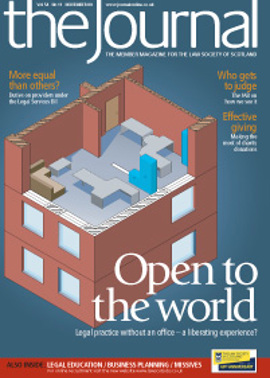Fair competition

With high unemployment and few vacancies, job market competition is fierce. The likelihood of recruitment decisions being challenged in the employment tribunal has grown ever higher.
Disappointed work-seekers who sense unfairness in a recruitment process may resort to the anti-discrimination legislation, perhaps encouraged by recent research undertaken for the Ethnic Minority Employment Task Force which reveals significant discrimination in recruitment against ethnic minority applicants.
During the exercise, three applications were made for each of 987 advertised vacancies. The applications were very similar but one was submitted using a “white British” name, and the other two using names from different ethnic minority groups. Analysis revealed that 69% of “white British” applicants received a positive response, but only 39% of ethnic minority applicants.
This type of bias has previously translated into case law. Bangladeshi Mr Miah was having difficulty gaining employment, and submitted two almost identical job applications outlining his skills and experience for the post of trainee mortgage adviser. One was in his own name; the other in the fictitious identity “Mark Williams”. The latter prompted three voicemails and two emails indicating a wish to discuss the application further. The one in his own name received no response. His race discrimination claim was undefended, was upheld and compensation of £103,850.30 was awarded: Miah v Shearer Darnell Recruitment (16 May 2006; ET/3202696/05).
Aids to neutrality
The Final Report of the Equalities Review (a precursor to the Equality Bill) found that some inequalities are so entrenched that merely continuing to prohibit discrimination is insufficient, and more far-reaching “balancing measures” are required.
There may be lessons to learn from the “age neutral” application form prepared by the Employers Forum on Age. It contains three sections: Personal Information; Equal Opportunities Monitoring; and Competencies. Only the last of these is seen by the person preparing the interview shortlist.
The idea is being developed as the Equality Bill progresses through Parliament. Liberal Democrat MP Lynne Featherstone has tabled an amendment for the report stage that would offer protection from “pre-interview discrimination”:
“An employer (A) discriminates against a person (B) in the arrangements A makes for deciding who to offer employment if A fails to take reasonable steps to ensure that – (a) the selection for interview is carried out on an anonymous basis, and (b) the person selecting for interview does not know the gender, race, sexual orientation, age or marital status of B, or whether B has a disability.”
Leaving aside the clumsy wording and its failure to cover all the protected characteristics, this type of measure holds the promise of helping dissipate discriminatory considerations at shortlisting stage, but not those that might creep in further into the process. Hence it would not address such inequalities as what the Department for Work and Pensions describes as the “persistent and unexplained” gap in employment rate between the general and the ethnic minority population of Great Britain (13.8 percentage points in the second quarter of 2009).
Positive action?
Scope for employers to take positive action measures is currently limited to, for example, affording members of a disadvantaged group access to facilities for training which would help fit them for particular work, or encouraging them to take advantage of opportunities for doing particular work.
Clauses 154 and 155 of the Equality Bill set out a revised, and apparently significantly broadened, positive action defence, which led to one newspaper headline: “White men to face jobs ban”! In truth, these provisions would amount to a limited form of tie-break for recruitment and promotion purposes. Where the decision-maker “reasonably thinks” that persons who share a protected characteristic suffer a disadvantage connected to that characteristic, or their participation in an activity is disproportionately low, then, so long as there is no general policy of preferring members of one group over another, the employer will have a defence to a discrimination claim if it appoints or promotes a member of the under-represented group who is “as qualified” as the unsuccessful candidate.
It is not positive discrimination because selection on merit will still be key: preferring a less well-qualified candidate from an under-represented group will still be unlawful.
Ongoing processes
Appropriate equal opportunities monitoring should be carried out by all organisations, to enable them to audit their recruitment processes to check whether the proportions of those of a particular race or ethnic origin (for example) change as between the application, shortlisting and appointment stages, pinpointing any hotspots.
The Equalities Review spoke of “balancing measures”, but it appears the ideal will be for “balanced measures” which both address the possibility of ongoing discrimination and tackle historic inequalities.
Time will tell whether an appropriate legislative balance can be struck, but in the meantime, time and energy invested in training recruiters and others on equal opportunities issues will help avoid both overt and subconscious bias from impacting on the search for talented new recruits.
Jane Fraser, Head of Employment, Pensions and Benefits, Maclay Murray & Spens; convener, Employment Law Specialist Panel
In this issue
- The equality, diversity and discrimination agenda: change and challenge ahead
- Justice on the green front
- Let the light in
- Needs of the family
- Reality on the West Bank
- Outside of the box
- Effective philanthropy
- Case for the defence
- Taking on the system
- Same rules for all?
- The benchmark
- Law reform update
- From the Brussels Office
- Appreciation: David Hector MacNeill
- Halfway to the Big Bang
- The same but different
- Five steps forward
- Ask Ash
- Preparing for disaster
- Rules a-changing
- Fair competition
- Time on whose side?
- 40 days and 40 nights
- Hear the grown-ups
- Problems of transition
- Scottish Solicitors' Discipline Tribunal
- Website review
- Book reviews
- Life on the other side
- Never waste a good crisis






